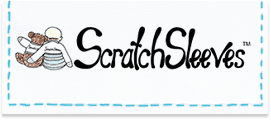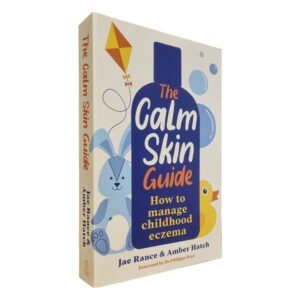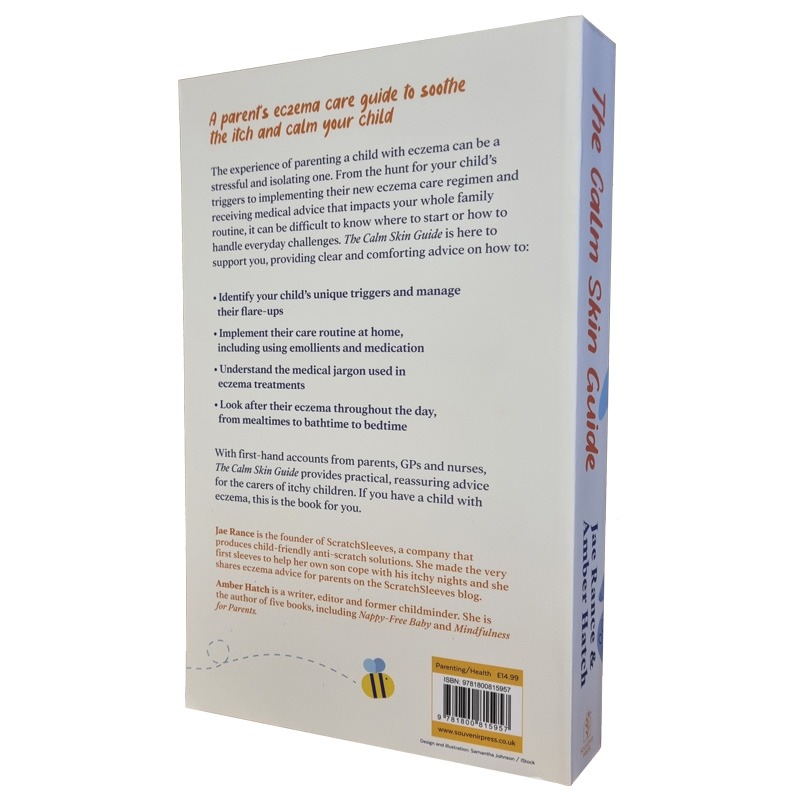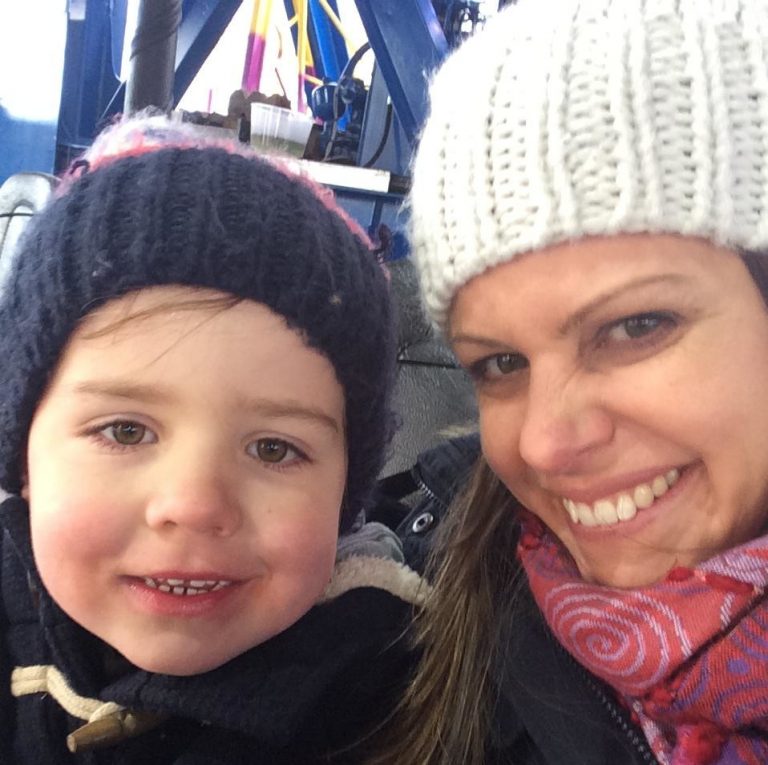Help! My baby has eczema… Top tips for parents new to baby eczema



There’s more information about baby eczema available on the web than anyone can hope to read in a lifetime. We have distilled our experience into 8 simple steps that will get you through the first few months of your baby’s eczema.
If your dealing with an eczema flare-up right now – head over to our article on dealing with eczema flares.
Don’t panic!
Watching an angry, red rash creep over your baby’s cheeks and forehead is horrible. But you’re not alone, eczema is very common. Over 20% of children suffer from it at some point in their lives. Eczema typically appears when babies are 3-4 months. The vast majority of children grow out of the worst of it before they are 2 years old.Ditch the detergents
The skin is protected by natural oils and an acid mantle but soaps and toiletries are degreasing and alkaline. Even ‘gentle’ baby toiletries strip away the protective oils in your baby’s skin and neutralise the acid mantle. Don’t use soap and shampoo in your baby’s bath and avoid baby wipes. Plain water is usually plenty. If you need more you can use emollient (medical moisturizers) to wash the skin. For laundry, half the amount of detergent you use (you won’t notice the difference, I promise). Add in an extra rinse cycle. Avoid detergents and stain removers containing optical brighteners and fragrance. You may be interested to check out these pieces on laundry: Eczema Friendly Laundry: Detergents (and their ingredients); Eczema Friendly Laundry: Stain Removers; Avoiding Baby Eczema Trigger: #1 Laundry
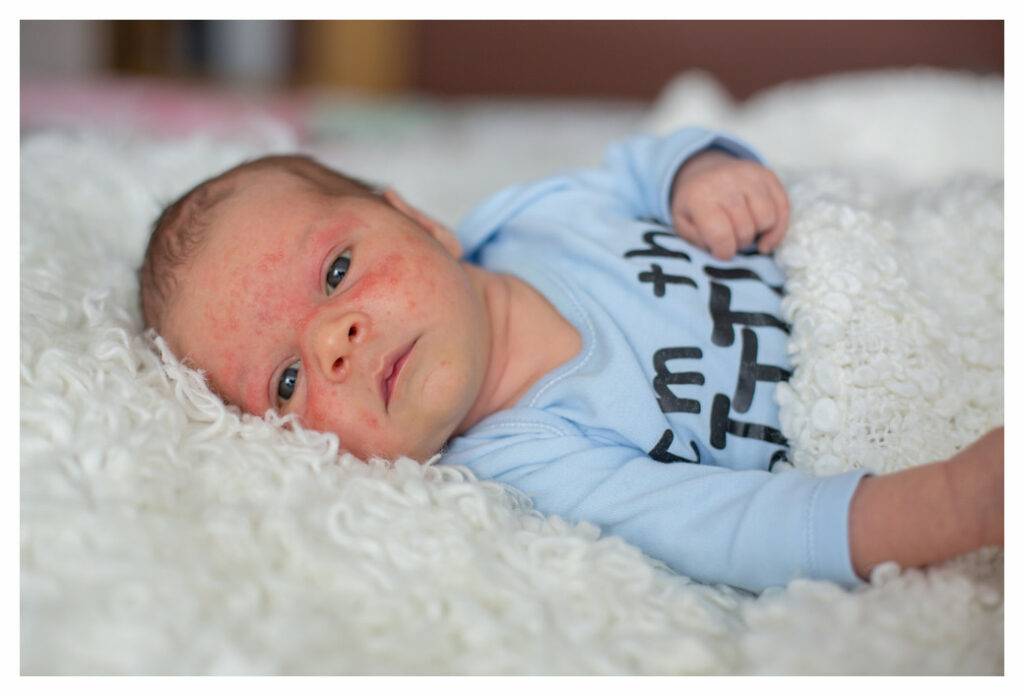
Keep your baby’s skin as intact as possible
Eczema is incredibly itchy and can even itch before any rash appears. Itching inevitably leads to scratching which in turn leads to scabs and infections which make the itch even worse. Keep your baby’s fingernails short and smooth. Use scratch mitts when your baby is at their most scratchy. ScratchSleeves were designed specifically for our itchy, scratchy little boy.Get an appointment with your GP
Emollients are the key component of any baby eczema treatment and are available free of charge on prescription. Your GP will be able to give you advice on which emollients are likely to work best for your baby and how to use them effectively. If your baby’s eczema is particularly troublesome and affecting their sleep, your GP may also prescribe topical steroids to bring the flare-up back under control. Steroid creams are safe, so long as you use them in accordance with your GP’s instructions. They should only be used to control flare-ups, not for long term eczema management. If you have concerns about using topical steroids read our post written by Dr Sam Hunt, Consultant Dermatologist here.Talk to your family
Eczema and eczema triggers often run in families but as it usually clears up quickly. You may have no idea that you or a sibling were similarly afflicted. I didn’t realise that I had eczema as a baby (as well as when I was a teenager) until my son’s eczema appeared. My mum was suddenly a font of useful information.Make sure that cows’ milk protein allergy isn’t a problem
CMPA affects around 0.5-1% of breastfed babies and 5-7% of bottle fed babies. Most grow out of it by the time they start school. Symptoms can appear immediately after eating or may take hours or days to develop and include stomach problems (reflux, colic, diarrhoea or constipation), skin reactions (redness or swelling around the eyes and mouth), hay-fever like symptoms (runny nose and wheezing) and eczema that doesn’t respond to treatment. If your baby is diagnosed with CMPA, your GP will be able to prescribe special formula milk. Do not give your child any other type of milk without first getting medical advice. Read more in our post about CMPA.Be patient
There is no miracle cure for eczema and every case of eczema is unique. It may take time to find emollients that work for your baby and it will take time for skin to heal. Sometimes triggers are easy to spot and others you will only identify years later. We didn’t realise that our itchy baby’s eczema was aggravated by the family cat until allergy testing for allergic rhinitis when he was 10 showed that he is hugely allergic to them, but that’s another story.Beware of snake oil sales(wo)men
As with male pattern baldness and belly fat cures, the internet is awash with miracle ‘cures’ for eczema. That said, there are plenty of reputable site: the NHS website, patient.co.uk, the National Eczema Society, Eczema Outreach Support and Nottingham Eczema Support are great sources of reliable information. There are also lots of great local support groups that they can put you in touch with. Be wary of groups that aren’t supportive of a range of approaches to eczema management, including the conventional ones. Look for independent reviews of products.
As well as sharing our experience of bringing up an eczema child (and favourite allergy-friendly recipes), we also manufacture and sell our unique stay-on scratch mitts and PJs for itchy babies, toddlers and children. We now stock sizes from 0-adult years in a range of colours and designs. Visit our webshop for more information.
The Calm Skin Guide
Love our blog? It's also available in book format with:
- First hand accounts from parents & medical professionals
- Easy navigation
- Comprehensive index
- Additional material
Signed copies available at no extra cost
Written by:
Reviewed by:
Interesting article? Don't keep it to yourself...
Read next...
You may also find helpful...
Quick buy


Multi Buy Discount

Spend between £30 - £60 and save 5%
Spend between £60 - £120 and save 10%
Spend over £120 and save 15%
Discount automatically applied at checkout
No Quibbles Guarantee
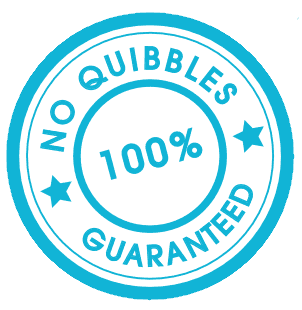
ScratchSleeves abide by a no quibbles guarantee.
Free UK Postage

Free packing and postage on all UK orders. For overseas orders to Europe postage is from £3.50, to USA is £6.50 and to the rest of the world, from £3.75.

